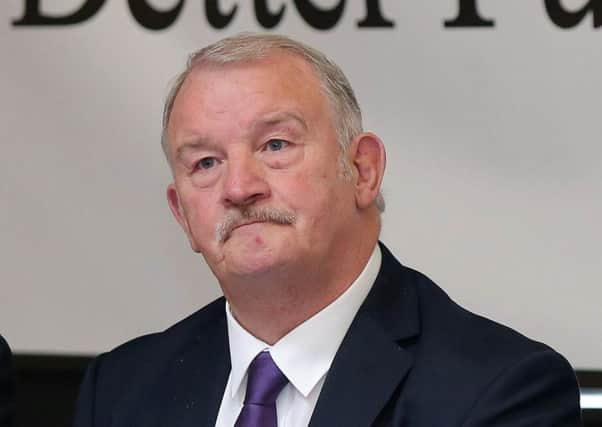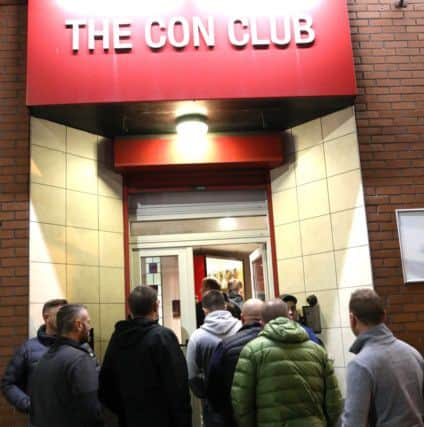Brexit: Loyalists say Dublin has destroyed trust built with them over decades


Mr Wilson revealed the existence of previously undeclared talks on Brexit between Dublin and the Loyalist Community Council, made up of UDA, UVF and Red Hand Commando (RHC) members.
His warning came after some 500 loyalists gathered at the Constitutional Club in east Belfast on Monday night to discuss their ‘betrayal’.
Advertisement
Hide AdAdvertisement
Hide AdThey believe that republicans have won the argument against border customs checks after Brexit through threats of violence, and that the checks will now be done between NI and GB instead, undermining the Union.


East Belfast loyalist Mr Wilson, who describes himself as ‘a former combatant’ linked to the RHC, said there was “a lot of anger” at the meeting.
“Loyalists feel that if they use the same threats that they might achieve their ends. And that has to be answered by people in the Alliance Party, the SDLP and Sinn Fein who said that there could be violence if the border was reinstituted.”
The consensus was to do things peacefully, he said. “But the anger is there”.
Advertisement
Hide AdAdvertisement
Hide AdHe added: “The Irish government are also very complicit. Simon Coveney we met twice and we may as well have talked to a brick wall because they didn’t listen to us.
“All the work that has been done by the Irish government over the past 20-odd years from Bertie Ahern until the present day – all that work has gone down the tubes.”
Violence is “absolutely not” acceptable, he said, but younger loyalists don’t have the same reservations “because they never came through what we came through”.
The PUP declined to make any comment, but former leader Brian Ervine said discontent has been simmering for years.
Advertisement
Hide AdAdvertisement
Hide AdHe cited former US envoy Richard Haas as saying after his mediation with the parties here: ‘If these things are not resolved there will probably be violence.’
Mr Ervine added: “I do not believe that any violence is acceptable, it has not done us any good. But there is a lot of anger in these areas because of a feeling of betrayal.”
Loyalist activist Jamie Bryson said: “No sensible person wants to see violence, loyalism has spent three years reaffirming a commitment to peace, but ultimately loyalism’s support for the peace process and the Belfast Agreement was predicated upon one very simple thing, the Union is safe.
“And the threat of violence has been used to undermine the Union and drive us into an economic united Ireland.”
Advertisement
Hide AdAdvertisement
Hide AdA spokesman for the Irish foreign affairs department said: “The Irish Government has consistently tried to listen and respond to the concerns of all those affected by the UK decision to leave the EU, centrally including people from all communities in Northern Ireland and in border regions. We fully recognise there are real concerns on all sides. Any deal, including this one, involves compromise.
“This Agreement does give a real democratic voice for the people of Northern Ireland, through the institutions of the Belfast / Good Friday Agreement, into the operation of the EU-UK Withdrawal Agreement and Protocol.
“The specific arrangements put in place for Northern Ireland will not continue into the future unless a majority of the political representatives of Northern Ireland agree they should.
“It’s important that these arrangements work for everyone and it is essential that the voices of all the political representatives of Northern Ireland, from all communities, are heard and that arrangements are sustainable in terms of Northern Ireland politics and society.”